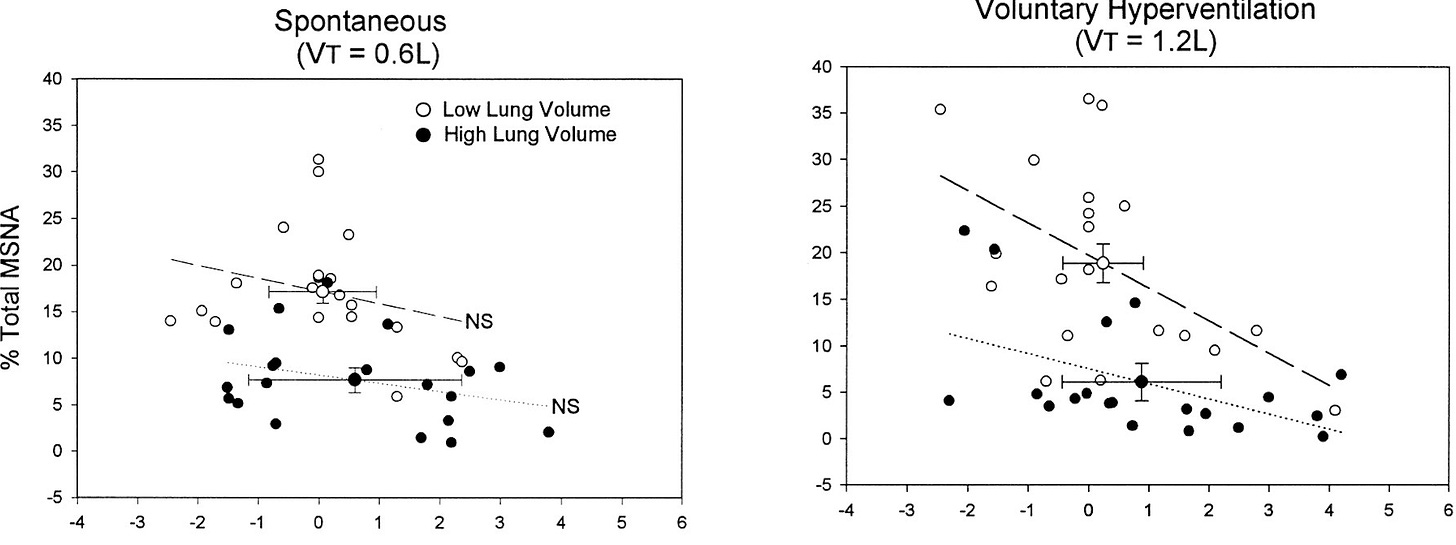Hello brilliant breather!
How is your breath today?
I’ve always treasured the act of observing, translating, and sleuthing. When I could dig into the differences and unearth similarities between ideologies, religions, and theories at school with six books opened in front of me, I danced a little jig like a squirrel when he happens upon a nut. This past weekend, I got to wade back into that practice a bit, when leading the Explore Your Exhale Hold workshop at Yoga Mandali. A few of the findings we navigated together on Saturday compose this thread.
UPCOMING WORKSHOPS
Nourish Your Body Workshop at Palette - 2/7 | 5:30-7 pm - $35 per person

Online February Breath Break - 2/15 | 12:30-12:45 pm - Free
WINTER AND THE EXHALE HOLD
We started the workshop on Saturday by sharing what we each appreciated about winter. It was interesting because, for most of the attendees, it is a season to trudge through with the ending in mind. A couple of people expressed relief in being able to turn inward and enjoy some slower days indoors. Others shared gratitude for the seeming absence of pressure to go out and about compared to the summer.
Take a slow breath and reflect.
What do you appreciate about winter? How does winter encourage you to grow and wade into discomfort?
Hearing their thoughts and how they wanted to push through winter to get to spring reminded me of how I was hesitant about playing with the exhale hold at the start of winter. The air hunger coupled with the sense of emptiness, kin to loneliness irritated my wounded fear of not being enough unless I am visibly fixing, growing, or contributing.
As Katherine May writes in Wintering: The Power of Rest and Retreat in the Difficult Times, “Winter is a time of withdrawing from the world, maximizing scant resources, carrying out acts of brutal efficiency, and vanishing from sight; but that’s where the transformation occurs. Winter is not the death of the life cycle, but its crucible.”
I felt that brutal efficiency at the beginning of this season when pausing after the exhale and now the BRUTAL is just brutal and depending on the day, beautifully brutal -woot! No longer does my nervous system see deflated lungs for a few counts as a serious threat.
Give it a try to witness your reaction to your exhale holds today. Is it BRUTAL, brutal, beautifully brutal, or…..?
This recording has a few guided breaths with extended exhale holds. Remember to consult with a doctor if you aren’t sure if extended holds are for you in your current body.
YOUR LUNGS TAKE UP LESS SPACE DURING THE EXHALE HOLD
The fact that your lungs are deflated and look like withered cantaloupes as they do in the diaphragm model here is important. The decreased lung volume seems to play a key role in the sympathetic activation in the nervous system, which interestingly mirrors the visual cues and cycles of harsh yet invisible work that winter is known for as explored above.
As the lung volume decreases (exhale moves into pause after an exhale), the sympathetic activity of your autonomic nervous system increases, which is measured as MSNA. You can see in the figure below that in all three subjects, the MSNA decreased from the beginning of the inhale to the top of the inhale and then increased during the exhale, where it reached its peak at the end.

In the graph on the right when the breath is manipulated as you do with breathwork, the activation of the sympathetic response seems to be even more elevated. Pretty neat, right?
Special shout out to Nick, the Breathing Diabetic, for sharing this study with me and sharing his takeaways about MSNA and the sympathetic response throughout the breath cycle. If you are a fellow breath nerd, definitely check out his blog and resources.
S P A C E IN THE EXHALE HOLD
This idea of space and how the decreased volume of the lungs leads to more work in the body makes sense on the physiological level. Your body needs to take in the air for the oxygen to serve your processes.
When looking at it through the lens of how playing with the exhale hold can buoy resilience when living with the collective grief of the here and now, it at first doesn’t make sense to me. Don’t I want to take up space? Get loud? Stand up for what I believe in?
Yes, that is true and there is something about getting out of the stories in the head and letting the physiological space created during the exhale hold be a teacher. Letting the space be something to savor slightly, especially when it is only yours to know. To understand how the simple acknowledgment of your fear of emptiness can be profoundly nourishing.
Now, take some slow breaths and ask yourself the questions from above but with the exhale hold as the subject instead of winter.
What do you appreciate about the exhale hold? How does the exhale hold encourage you to grow and wade into discomfort?
If you want to explore these questions some more and are in the Capital Region, come to the upcoming Nourish Your Body workshop. The combination of slow breaths and playing with different tonics may just help you better understand your relationship with this season and nourishment.
Sending you and those who cannot sweet, slow breaths today,
Sarah




